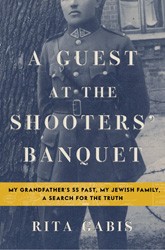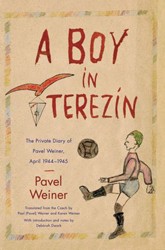To survive the Holocaust, Rasia Kliot of Vilnius, Poland relied on her “good” — i.e. Aryan — features, good fortune (her family’s wealth allowed her to buy sanctuary from non-Jews), Polish Christian friends who provided her with false documents enabling her to live outside the ghetto, her intuition, and her ability to submerge her Jewish identity under an assumed Christian one. The war’s end never fully liberated her from the sense of threat, her distrust of people, and her ambivalence toward her Jewishness. These post-traumatic consequences permeated her complicated relationships with her Greek, non-Jewish husband, himself a survivor, and her only daughter, Helen Mitsios, raised as a Catholic until she began her own journey back to her Jewish roots.
The book offers a window into the internal mechanisms of trauma and survival (Rasia’s narrative) and the transmission of trauma across generations (Helen Mitsios’s narrative) in an unusual family constellation marked by multiple religious identities. Though marred by inconsistencies and errors and a sometimes jumpy and unclear chronology, the book nevertheless successfully conveys Rasia’s determination to survive and the emotional costs that survival demanded. The book is strongest when communicating Helen’s struggles to extricate herself from the web of over-protection, love, and fear that were her mother’s legacy and her determination — as strong as her mother’s — to make peace with her mother, herself, and her Jewishness in a post-Holocaust world. Photographs.




